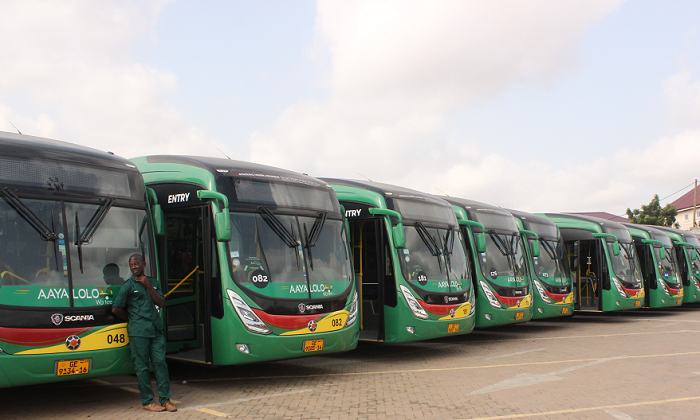
‘Aayalolo bus system not viable venture’
After almost two years of operation, it has emerged that the Quality Bus System (QBS), popularly known as Aayalolo , may not be a viable venture.
Advertisement
A source within the Greater Accra Passenger Transport Executive (
It revealed that since the beginning of this year, workers of the company, including top managers, had encountered a lot of challenges with the payment of their
The source added that if support was not given to
“We think the time has come for the government to extend enough support to
Salary arrears
Confirming the development, the national president of the Ghana Cooperative Bus Rapid Transit (BRT), Mr Edward Hoffmann, said GAPTE’s cash inflow was lower than its expenditure and that was the reason it was facing the challenges.
He said from February to April, this year, workers received
“That means we need support from the implementing agencies to be able to run a successful business.
“The board has met and has asked us to give them some time to resolve the issues, and we hope something fruitful will come out,” Mr Hoffmann added.
Aayalolo patronage
Even though patronage of the buses was quite high at the time the service began, it started dwindling six months afterwards from the expected 12,000 passengers per day to 9,000.
Now, on a daily basis, patronage ranges between 9,000 and 10,000 on the Amasaman-Ofankor-Achimota-Accra Central Business District (CBD) corridor.
Ideally, on the average, each bus should be able to pick 24 passengers from departure to destination, but only 18 do so on the average, sometimes it is less.
The Daily Graphic also observed that a lot of times during the day, the buses moved about empty.
Meanwhile, there had been promises and commitments made by
In 2017, the Minister of Local Government and Rural Development, Hajia Alima Mahama, said GH¢1.7 million had been made available to facilitate the implementation of other corridors in the capital, including the Adentan-Tudu corridor, to pave the way for the rest of the buses to be put to good use.
She explained at the time that the amount was to cater for the provision of signages and other fittings.
Adentan corridor
On the Adentan-Tudu service, the Public Affairs Manager of
He said
“We at
He explained that so far, 15 buses out of the 245 had been deployed to Kumasi because the Kumasi Metropolitan Assembly (KMA) wanted to implement the QBS in the metropolis, while the rest had been deployed on the other corridors.
Poor implementation
For his part, the President of the Chartered Institute of Logistics and Transport (CILT) Ghana, Mr Ebo Hammond, said the whole challenge with the QBS could be traced to the inability of the agencies responsible for its operation to ensure that the dedicated lanes were not abused by
“For a successful bus rapid transit, there is the need for a ‘right of way’ to encourage people to use the system.
“If that is not done, it defeats the purpose of the system, and people will also refrain from patronising the buses because they will spend the same time in traffic as with ordinary vehicles,” he said.
Meanwhile, Mr Hammond has called on the managers to be more innovative in marketing the service to the public.



